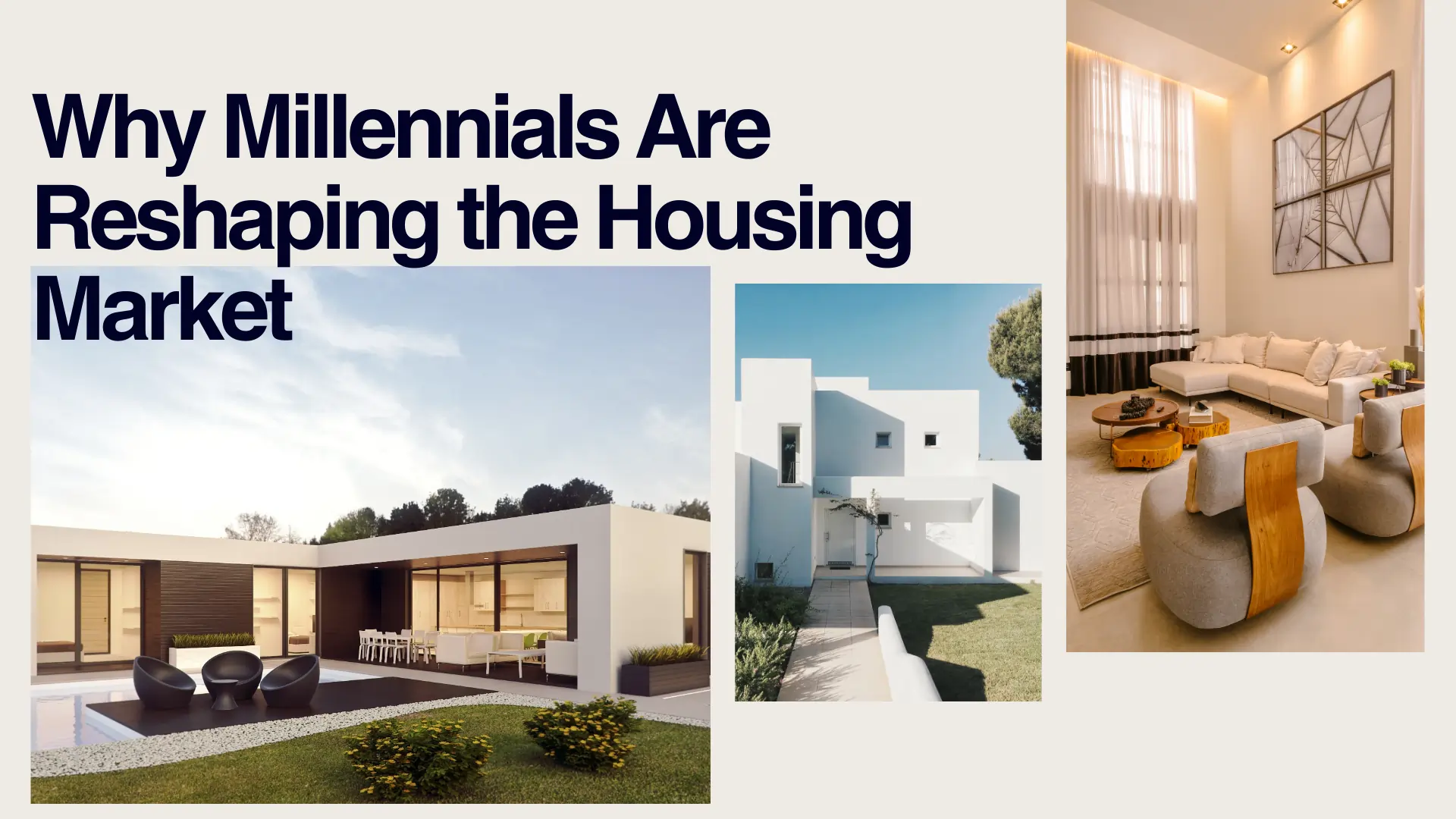
Millennials Are Reshaping the Housing Market
Millennials, the generation born roughly between 1981 and 1996, are now the largest adult living generation in the United States. And they’re having a profound impact on the housing market. From their preferences for location and amenities to their unique financial situations, Millennials are changing the landscape of homeownership and rental markets.
Location, Location, Location (But Not Always the Suburbs)
Gone are the days when a cookie-cutter house in the suburbs was the ultimate dream for young families. Millennials are increasingly drawn to urban centers and vibrant neighborhoods. They crave walkability, access to public transportation, and proximity to cultural attractions, dining, and entertainment. This shift in preference has fueled a surge in demand for urban housing, driving up prices in city centers and revitalizing previously neglected areas. This aligns with the Millennial Home Buying Trends of prioritizing location and lifestyle over traditional suburban living.

Amenities Matter More Than Ever
Millennials are a tech-savvy generation, and their homes reflect that. High-speed internet access, smart home technology, and dedicated workspaces are now essential features. They also prioritize amenities like outdoor spaces, fitness centers, and co-working areas, whether they’re renting or buying. This focus on lifestyle and convenience is influencing developers to incorporate these features into new construction and renovations.
The Rise of the “Renters by Choice”
While homeownership remains a significant milestone for many, Millennials are embracing renting at higher rates than previous generations. This is partly due to factors like student loan debt, economic uncertainty, and a desire for flexibility. Many Millennials view renting as a lifestyle choice, allowing them to experience different neighborhoods and easily adapt to changing life circumstances. This shift has led to a surge in demand for high-quality rental properties, particularly in urban areas, contributing significantly to the Millennial Rental Market.
Sustainability is a Priority
Millennials are deeply concerned about environmental issues and are increasingly seeking out sustainable housing options. They prioritize energy-efficient homes with features like solar panels, green roofs, and high-performance windows. They are also more likely to choose eco-friendly building materials and support developers who prioritize sustainable practices. This aligns with the Sustainable Housing Millennials trend, where environmental consciousness is a key factor in housing decisions.
The Impact of Remote Work
The rise and future remote work scope has further reshaped the housing market for Millennials. With the ability to work from anywhere, many are relocating to more affordable areas, escaping the high costs of living in major cities. This has led to increased demand for housing in smaller towns and rural areas, while also impacting the housing markets in traditional commuter suburbs.
A Focus on Community and Connection
Millennials are a highly social generation, and they seek out housing options that foster community and connection. Co-living spaces, shared workspaces, and community gardens are becoming increasingly popular. This desire for social interaction is influencing developers to create more communal living experiences, both in urban and suburban settings.

Conclusion
Millennials are a diverse and dynamic generation with unique needs and preferences. Their impact on the housing market is multifaceted and far-reaching, from driving demand for urban living and sustainable housing to embracing new models of renting and prioritizing community. As this generation continues to mature and shape the housing market, we can expect to see further innovation and evolution in the years to come.





